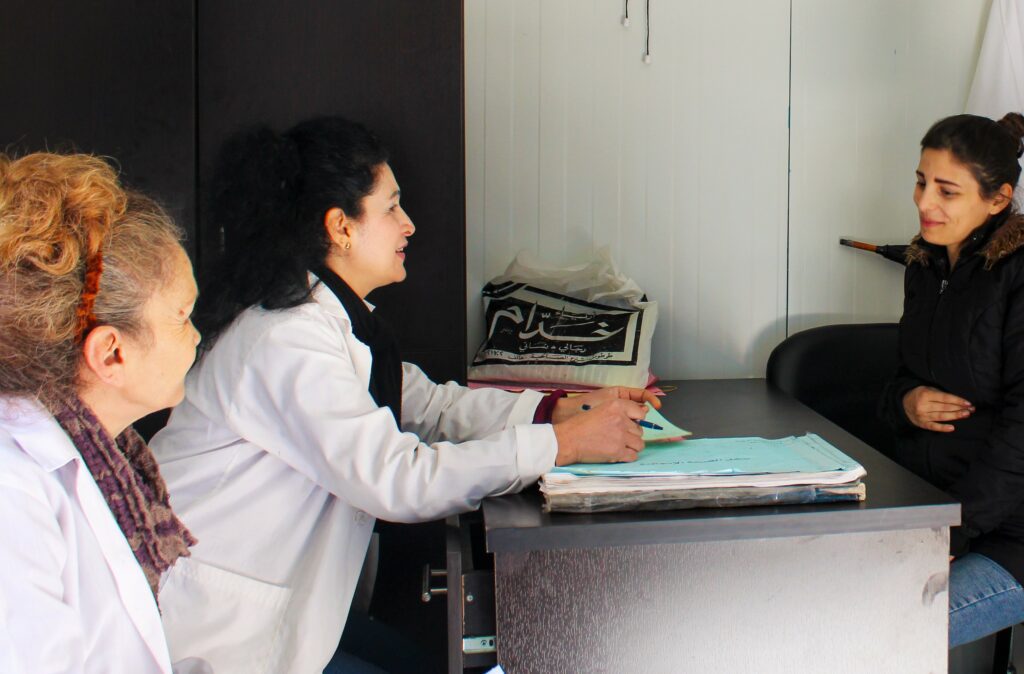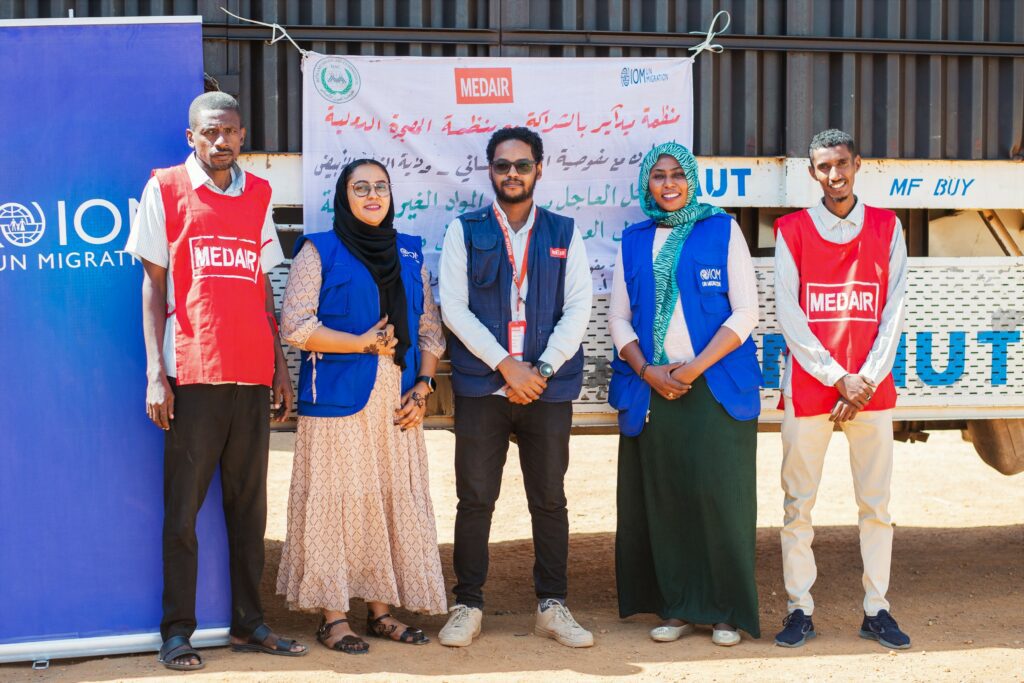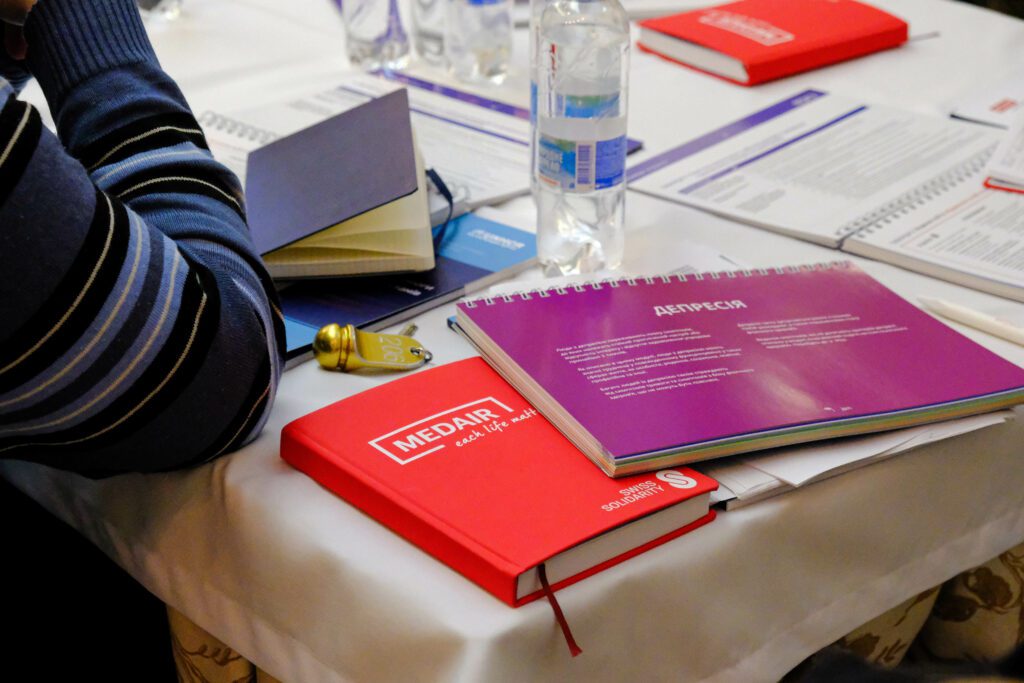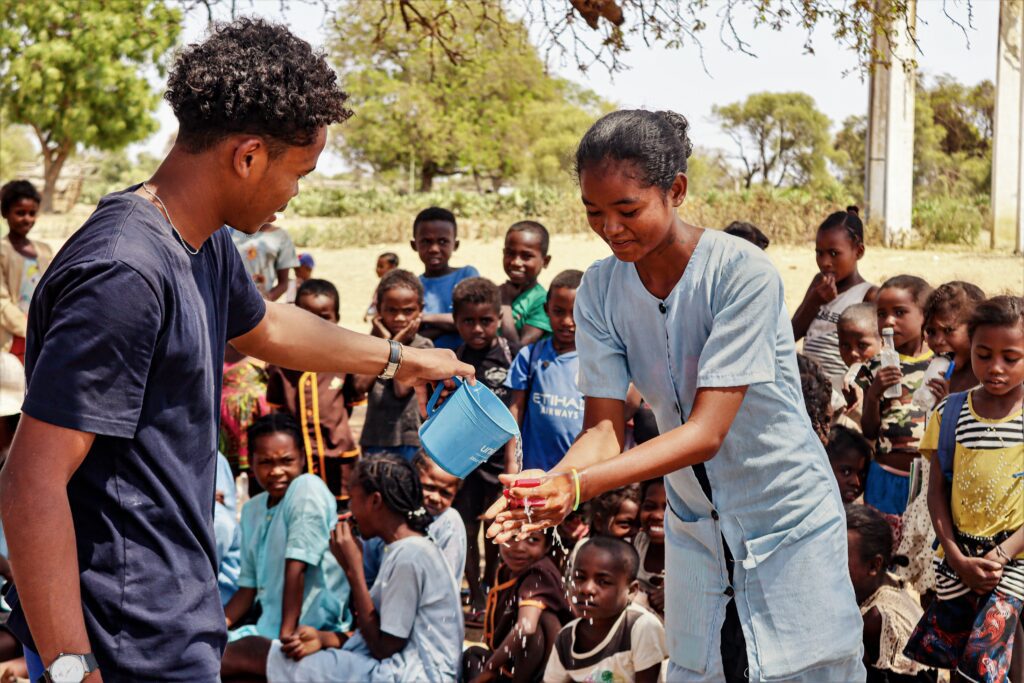“The breathing devices (respirators) Medair provided pulled us out of a crisis in the hospital. The number of COVID-19 critical patients was increasing daily. It was impossible to manage with the equipment we had. We needed the extra help.” Said Dr Rawda.
Dr Rawda works as the Chief of Nursing in the intensive care unit in Al-Hilal hospital, which is supported by Medair in Damascus, a city that has witnessed two critical COVID19 waves in March and December 2021.
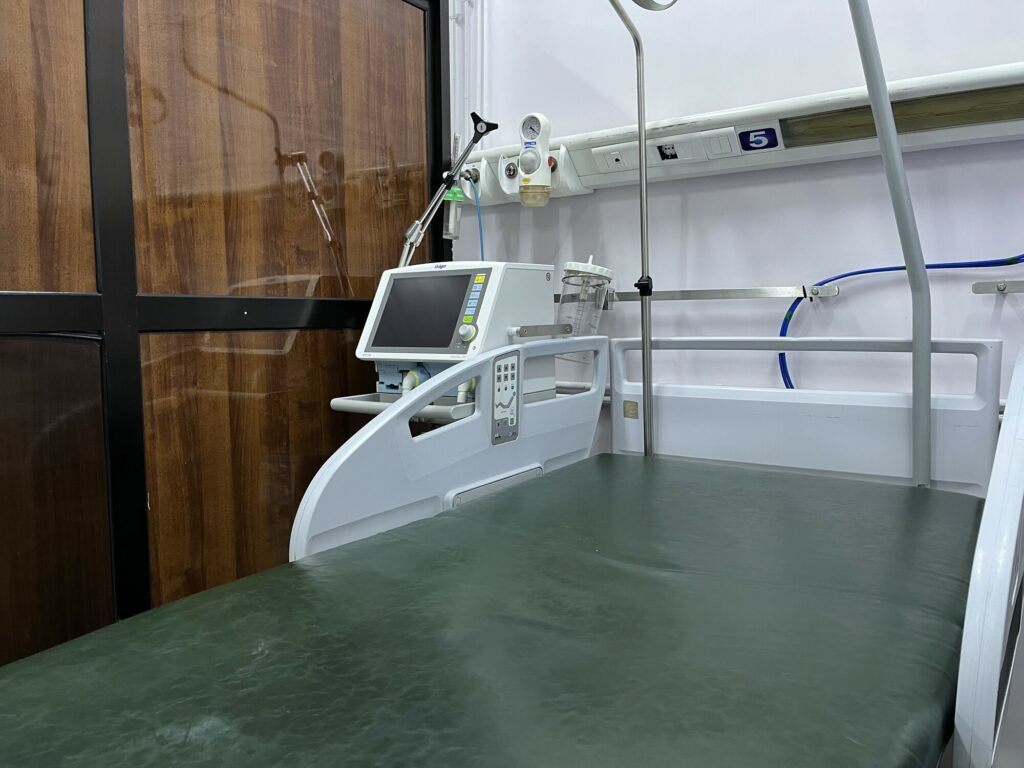
“As you can see, the bed is empty now. It’s a good thing. This means we’ve discharged a COVID-19 patient who was lying on it yesterday. No one needs to be put on a breathing support device now.” Dr Rawda, Chief of Nursing in Al-Hilal Hospital.
In Damascus, the capital of Syria, two hospitals were two of the main focal points for receiving COVID-19 patients since the pandemic spread in Syria early 2020. During that time, like every other hospital around the globe, the needs far exceeded the capacity of the hospital. Except in Syria, there was the added challenge of securing enough medical consumables and equipment, due to the economic and financial crisis. The public health system relies heavily on international aid, without that aid a lot more people would have died during this pandemic.
To date, over three thousand people have lost their lives. More than 56 thousand confirmed cases as of May 2022. The risk is still very high in Syria, according to OCHA.
Despite the resources being allocated to help COVID-19 patients, there was still a shortage in breathing support devices in health care facilities. The existing ones in the two hospitals were not enough, old and sometimes not functioning.
The Medair health team in Damascus responded to the challenge. The team provided breathing support devices, personal protection equipment, including face masks and sanitizers. In addition, the team rehabilitated an entire ward in Al-Mujtahid Hospital, increasing its capacity to treat COVID-19 patients.
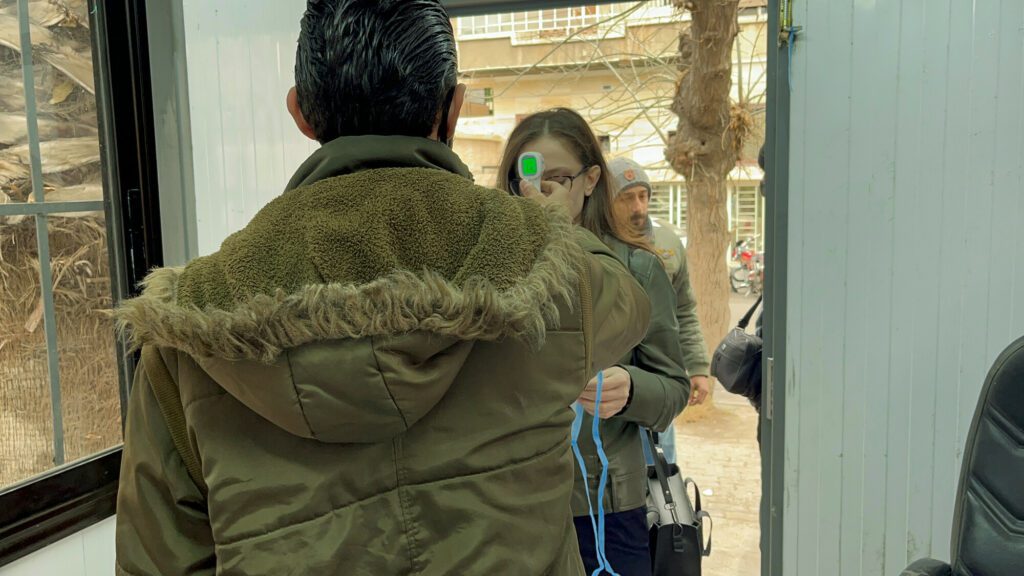
chamber at the gate of Al-Hilal hospital to measure temperature and hand out personal protection equipment
Medair also set up a chamber at the gate of Al-Hilal hospital to measure the temperature and hand out masks for visitors as well as patients. Medair’s focus was to help treat moderate to severe COVID19 cases, and to minimize the chances of communicable disease spreading within the hospitals.
The health team, with help from the medical staff in the hospitals, conducted a training on the use of the new breathing devices to ensure best results, along with other trainings on different health-related topics.
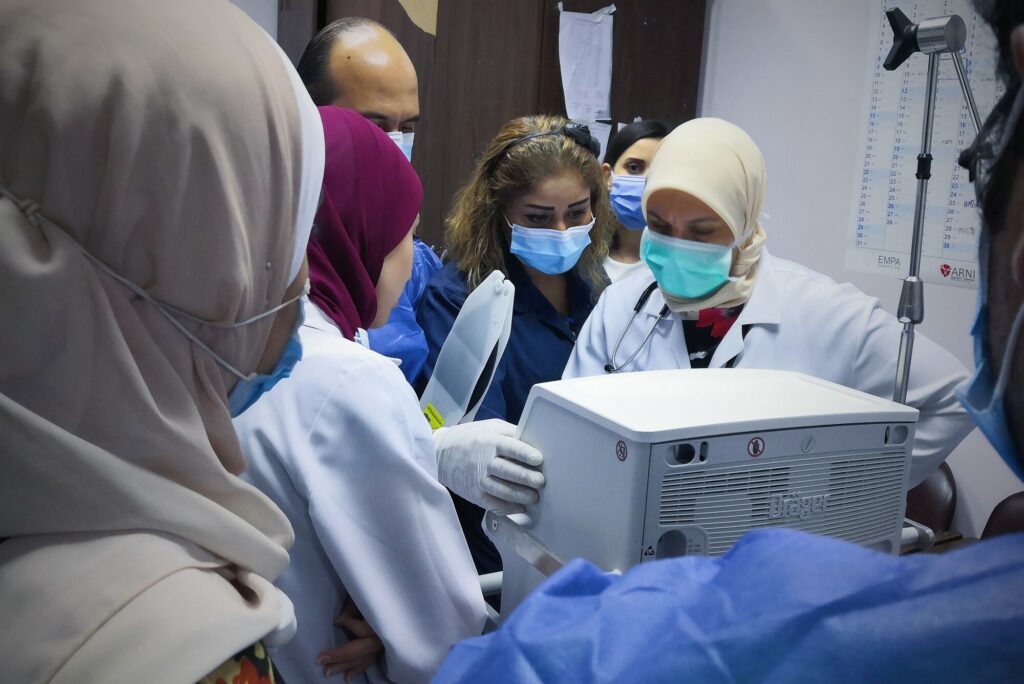
Training doctors and nurses on how to use the new respirator provided by Medair by a specialized engineer.
In Deir-ez-Zor, the largest city in eastern Syria, the only functioning hospital at the time was not equipped to receive different patients, especially COVID-19 patients. The situation was catastrophic. Deir-ez-Zor health infrastructure was severely affected during the crisis. The hospital there was not prepared for the pandemic. The hospital reported several deaths due to lack of supportive oxygen treatment and had to import medical oxygen gas from Homs which takes several days to reach the hospital.
Medair’s health and infrastructure teams in Deir-ez-Zor helped set up the first and one-of-a-kind isolation center in the eastern area. The center was equipped to receive the load of COVID-19 patients. Along with that, Medair provided the main hospital there with an oxygen station supplying patients with oxygen. This is the only functional oxygen station in the whole of northeast Syria, the reach and beneficiaries of this station go beyond Deir el zor city. Countless lives were saved and relieved thanks to the quick availability of oxygen. The oxygen station also played a crucial role in providing oxygen during the deadly sandstorm that happened in eastern Syrian in mid-May 2022.
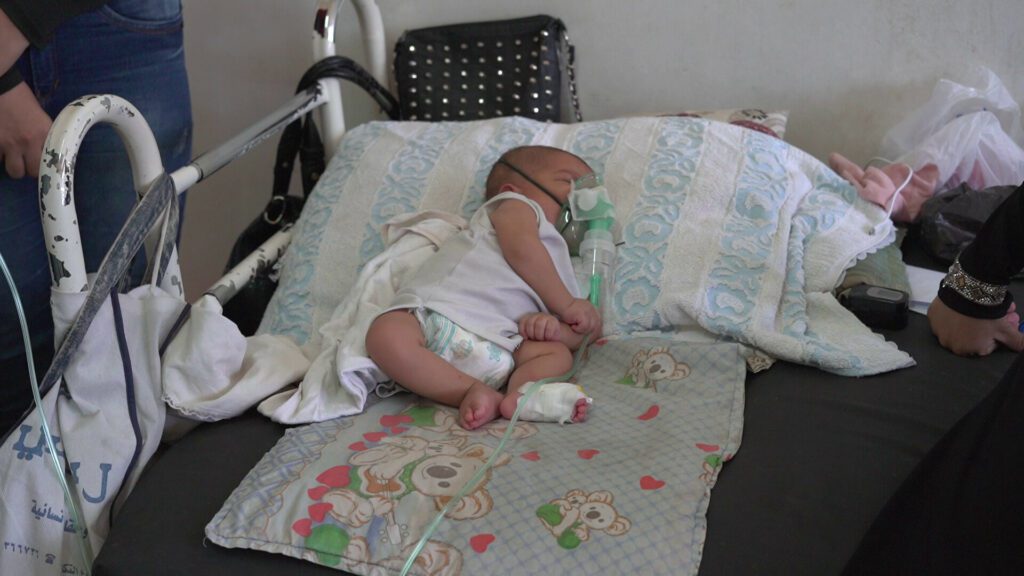
“As you can see, this infant alone is using two cylinders of oxygen. The hospital was struggling from a shortage of oxygen supply. The help was a must in this case.” Jamal, our health officer in Deir-ez-Zor, told us about the situation before the oxygen stations.
With coordination from the Syrian Ministry of Health, Syrian Arab Red Crescent and the International Commission of Red Cross in both Damascus and Deir-ez-Zor, Medair contributed to alleviating the burden that COVID-19 put health care facilities through.
Unfortunately, COVID-19 is here to stay with its newly emergent variants. COVID-19 remains a challenge for health care workers around the world. In Syria, suffering from the aftermath of an eleven-year-old crisis, support is essential for treating COVID-19 patients.
In Syria, Medair’s work is made possible by the European Commission’s Civil Protection and Humanitarian Aid Operations, UNOCHA, Swiss Agency of Development and Cooperation (SDC), Swiss Solidarity, SlovakAid and generous private donors like you.
This content was produced with resources gathered by Medair field and headquarters staff. The views expressed herein are those


